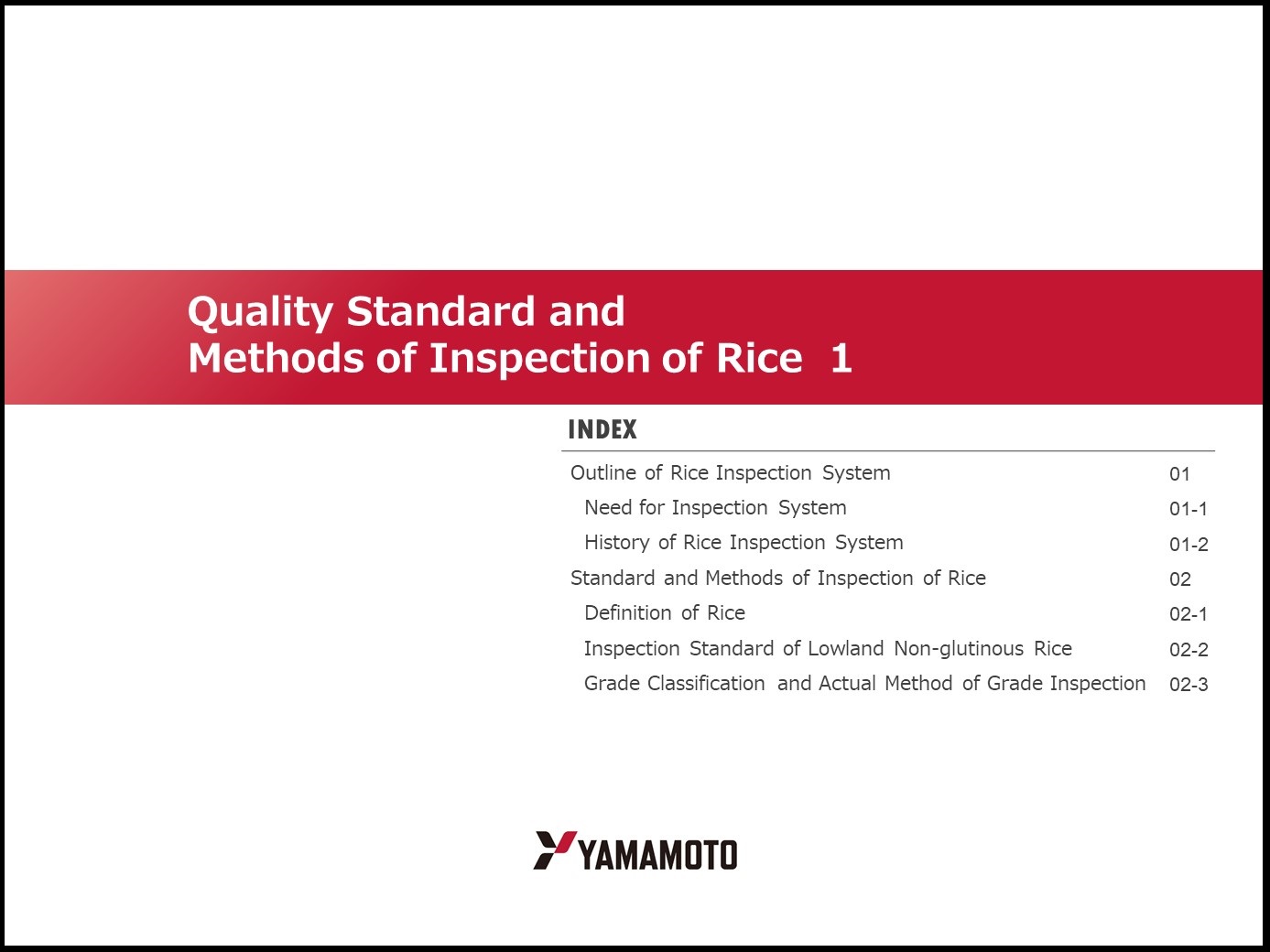70. Quality Standard and Methods of Inspection of Rice 1
- INDEX -
Outline of Rice Inspection System
Need for Inspection System
History of Rice Inspection System
Standard and Methods of Inspection of Rice
Definition of Rice
Inspection Standard of Lowland Non-glutinous Rice
Grade Classification and Actual Method of Grade Inspection
Outline of Rice Inspection System
Need for Inspection System
Rice plays an important socio-economic role in Japanese society as a staple food. Because
1) many kinds and brands of rice are being produced in large volumes,
2) substantial gap in quality is created by topographic and climatic conditions of place of production, and
3) rice must be distributed throughout the nation promptly after harvesting each autumn,
It is necessary to establish a national standard (inspection standard) for brand, quality, package, weight, etc., under which rice produced in various parts of Japan can be classified and stored.
Agricultural Product Inspection Law mandates that any rice that is produced in a large volume as a staple food must pass an inspection before commercial shipment. Rice classified and stored are accordingly given the necessary qualifications (assurance of quality), package, weight, etc.) as a product for distribution and to contribute to the fair and smooth trading of rice.
The inspection standard will also set a guideline for rice producers to improve the quality of rice, as well as a reasonable guideline for consumers to select the correct agricultural products
History of Rice Inspection System
Rice has long played an important role in the lives of the Japanese people. Rice inspections were seen as early as the feudal era when rice was collected as tax from farmers.
In the Meiji Era, a trade union inspected the quality and packaging of rice to enhance quality. The inspection of rice had gradually shifted to become the responsibility of prefectural governments, aiming at the standardization of inspection standards and improving the fairness of inspections.
There were complaints of insufficient standardization and political interference by local governments, which demanded the establishment of the Government Inspection. In 1951, the Agricultural Products Inspection Law was established, with which the national government, as a third party outside rice trade, has been conducting government inspections of agricultural products including rice.
